Spouse of Olathe Hate Crime Victim Moves On, in Life and Location ‘A fresh start is required’
Published August 4th, 2022 at 6:00 AM
Above image credit: Sunayana Dumala talks about her late husband, Srinivas Kuchibhotla, during a news conference at Garmin headquarters in Olathe, Kansas, Friday, Feb. 24, 2017. (AP Photo | Orlin Wagner)Her beloved “Srinu,” her husband for a few blissful years, still visits.
Usually it’s when she’s stressed, overwhelmed with something at work or anxious about selling their home in Olathe and moving across the United States.
Sunayana Dumala senses her husband caressing her hair, or the presence of his 6’ 2” frame beside her.
Then, she wakes up. It’s just a dream.
“His place in my life is something that no one can take away,” Dumala said. “But I took it for granted. I always thought that he would be with me.”
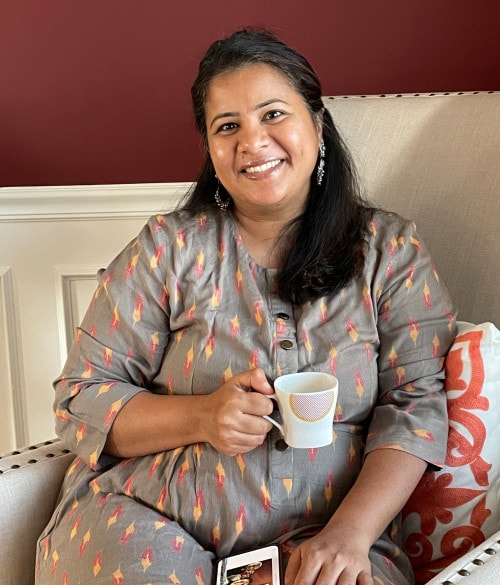
Five years ago, Dumala’s quiet life was thrust into a global spotlight. A man, acting on premeditated rage and anti-immigrant hate, shot and killed her husband and wounded two others.
The murder of Srinivas Kuchibhotla shattered their dreams of children together, of building a life in America.
It ignited fears in their native India about America’s gun violence. And it underscored the nativism that’s long shrouded the U.S.’s often rose-colored interpretations of the immigrant experience.
In the aftermath, Dumala endured predatory media from overseas. And for a time, she became entrapped in the complexities and unfairness of the U.S. immigration system.
All of it, but especially her loneliness, proved almost overwhelming. Until it no longer did.
“You get used to the void,” said Dumala, 37. “You accept the truth that the person is physically not here. But time never makes it right.”
’The Incident’
Srinivas Kuchibhotla had stopped for a beer in a neighborhood restaurant with a friend from Garmin, where both men worked as engineers.
Austin’s Bar & Grill was busy that February night in 2017. There was a University of Kansas basketball game on the big screens.
But a man there, also a local resident, had noticed the two friends weeks ago, commenting to others about “the terrorists.”
That night, he approached their table and poked Kuchibhotla the chest, questioning the India-born men’s immigration status, then demanding, “Get out of my country!”
Other patrons intervened like good Samaritan bouncers and insisted the man leave.
He did. But merely drove home to retrieve a semi-automatic pistol.
When Adam W. Purinton returned, he fired eight rounds, hitting Kuchibhotla multiple times and his friend Alok Madasani once, and one of the bystanders who tried to chase after the gunman.
Purinton later pleaded guilty to multiple counts, including a federal hate crime charge, and was sentenced to three consecutive life sentences.
Dumala doesn’t say the killer’s name. She only speaks of the crime as “the incident.”
“My anger has come down,” Dumala said. “But I’m not in a place to forgive.”
Rather, she’s crafting her own reply to a classic immigrant question.
A few days after the murder, she posted it online, presumably to Kansas City and the nation as a whole, asking for immigrants like herself: “Do We Belong?”
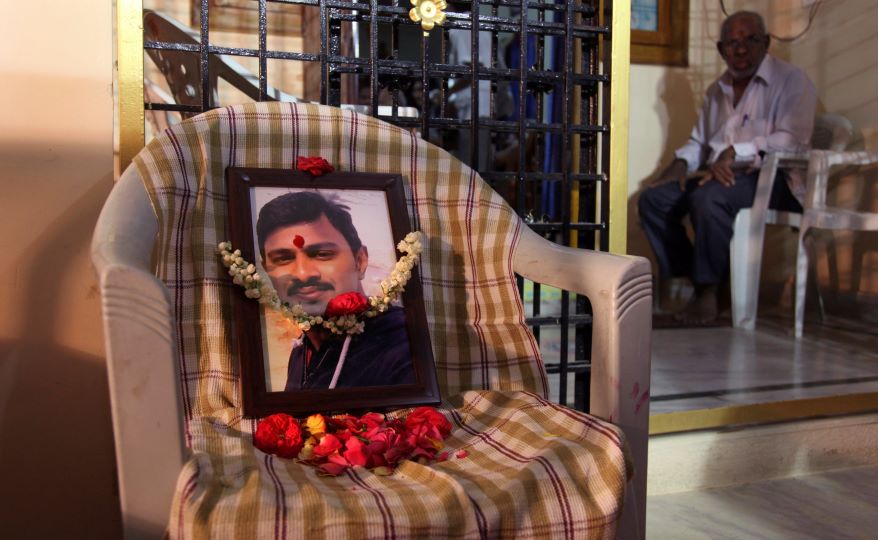
The Question
Replies to Dumala’s initial query are stored in her husband’s memory box.
It’s a medium-sized moving box, one where she carefully curated items that were given to her soon after the murder, choosing which to save.
There were so many. Drawings from young children of their interpretations of grief and hope. Someone sent her a shawl for comfort. There are candles, and stacks of sympathy cards.
To the box she’s also added some of Srinu’s personal items: the box of Valentine’s Day chocolates he’d given her a few weeks before his death; his notebook; cards he bought her; and the certificate of the first flight for the last helicopter that he worked on, designing the navigation system.
The mementos now are packed, along with her other belongings.
In late August, Dumala will move to a house that she’s building in Orlando, Florida.
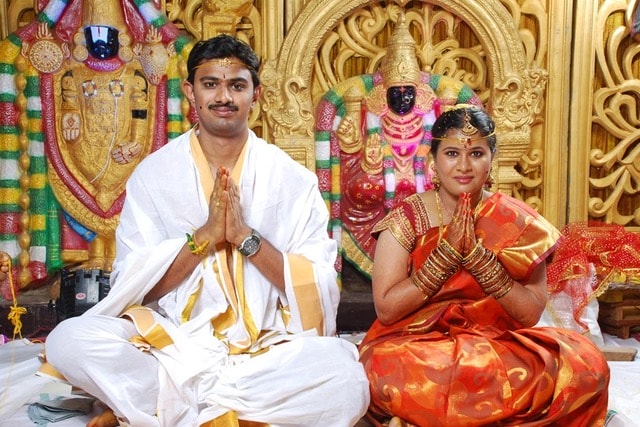
It’s a decision that she grew toward, a huge step in shaping her identity as a Southeast Asian woman, but one living independently in a new land.
“It’s needed for a new chapter, a new journey,” she said. “To move on, a fresh start is required.”
COVID also intervened.
Dumala had long resisted counseling, insisting that she was “fine.” But the pandemic further isolated her, as she worked from home. She sought help.
“The feeling of loneliness was on my face,” she said. “In a way, I’m thankful for COVID. It finally made me have a central connection with myself and my own well-being.”
There was a period right after the murder, when in despair, she reached out to one of her sisters.
“I was crying and kept saying that I’d lost everything,” she said.
What she heard in reply wasn’t necessarily sympathy, but a call to action.
“She said, ‘You have to make up your mind.’ “
Her sister told her a parable about a bird, who builds a nest only to see it fall and be destroyed. The bird rebuilds the nest.
Dumala says this sister, Karuna Dumala, is “her pillar.” She pressed for Dumala to gain the resolve to continue leading the life that she’d chosen in America, even without her husband.
Dumala had been the first in her family to move to North America, setting an example of upward striving.
Kuchibhotla had been a Brahmin, the highest level in India’s caste system. Dumala was from a lower caste, in the middle of the cultural scale.
Their marriage was considered inter-caste.
“It’s always love/arranged,” Dumala said, meaning that both families were consulted, but that the couple had formed their bond through six years of dating.
They were from the same region of southern India and met, introduced by friends, when she was still in India and Kuchibhotla was in Texas, earning a graduate degree. She arrived in the U.S. later, earning her graduate degree in engineering management from St. Cloud State University in Minnesota.
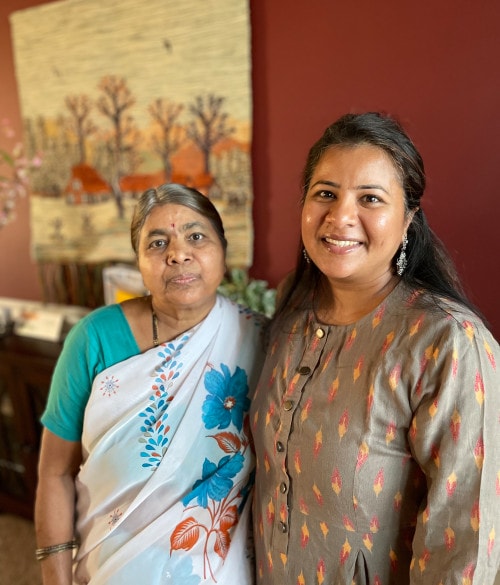
Culturally, India is changing, she said. But compared to the U.S., customs and attitudes can be patriarchal.
“Here in America, I am an individual,” she said. “I’m Sunayana first.”
Dumala’s parents are visiting Olathe from India, helping her with the move.
Her mother takes a break from preparing chai in the kitchen, where she’s been grinding spices. Vara Lakshmi Dumala stood beside her daughter, emphasizing the uprooting and the departure on a solo journey. There is pride and worry in her tone.
“Coming here, what that means, is having your own perspective,” Dumala said. “It’s for you to find your own ground. That is what I value about being in America.”
In Florida, Mindy Corporon, also of Johnson County, now lives about three hours from Dumala’s new home.
Corporon lost her son and her father in a 2014 hate crime in Overland Park, also a shooting. A white supremacist, an anti-Semite, targeted the two on the grounds that include the Jewish Community Center. He also killed another woman who was visiting her mother at the nearby Village Shalom.
Corporon and Dumala have a bond, each supporting the other in their chosen ways of commemorating the lives of their loved ones. There’s Seven Days and Dumala’s Forever Welcome.
“There’s never an answer to, ‘Why?’ ” Dumala said. “You just get used to not finding an answer.”
Dumala also has two long-term girlfriends, from their high school days in India, who live in Florida.
She concedes that the state may not become her forever home, but the U.S. will be.
“If I chose to leave this country, then I would be helping that man to win,” Dumala said.
A New Foundation
’A Dual Victim’
Dumala sips the savory tea her mother has prepared. She’s seated in one of two chairs in the picture window of the Olathe home.
It’s the spot where Srinu’s body once laid, sent with cultural respect by the funeral home after the murder. He rested there, before being flown to India for funeral rites.
But the funeral was an international affair, the subject of heavy media coverage inside India. For days the story had been aired, as an example of the hatred immigrants can face in the West and of American gun violence.
In India, Dumala remembers hurrying to enter the home of her husband’s family, her head down and covered by the hood of her coat. She still hears the clicks of the cameras going off. It was a paparazzi frenzy.
She did not attend the final burial rites. Hindu’s burn the deceased, releasing the soul.
The pyre was televised live. She has to live with the knowledge that footage exists of her husband’s body burning to ash.
Media there also emphasized that Kuchibhotla had been drinking in a bar.
The fact that Austin’s is a neighborhood gathering spot where families go for dinner was lost in translation. Instead, a far seedier type of establishment was implied by some of the news coverage.
Such media portrayals were as if Kuchibhotla had been where he shouldn’t have been and perhaps caused his own death, Dumala said.
Some editorials counseled that other Indians in the U.S. should only allow themselves to be heard speaking in English. Others criticized the White House response, charging that the Trump administration hadn’t condemned the killing. Then-U.S. Attorney General Jeff Sessions released a statement calling the crimes “detestable.”
Returning to Kansas brought new challenges. Dumala said she became a “dual victim,” of the hate crime and then of the immigration system.
Dumala’s legal status as an immigrant was tied to her marriage and her husband’s work with Garmin. With her husband deceased, she risked lapsing in status.
Then-U.S. Rep. Kevin Yoder tried to intervene. After Yoder left office, U.S. Sen. Jerry Moran helped navigate the paperwork and the many snags that can occur working with immigration.
Finally, in August 2021, she received her legal permanent residence, often referred to as a green card. It took 15 years from the time she first arrived in the U.S.
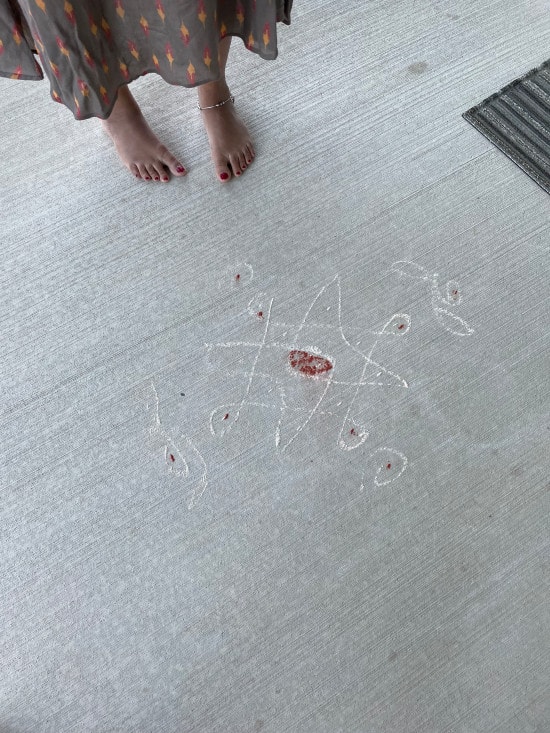
“I have my freedom,” she said. “My stay is not dependent upon my job situation, and I don’t have to leave the country if I leave my job.”
By 2026 she’ll be eligible for U.S. citizenship. She plans to achieve it, and then vote in her first presidential election by 2028.
Dumala already is active in politics.
It’s part of the work that she’s taken up through the nonprofit she founded, Forever Welcome. She advocates for welcoming, inclusive communities for immigrants.
“I fear the xenophobia that’s going to happen to Southeast Asians in the coming years,” she said.
Dumala’s been to Congress nearly a dozen times, telling her story as an example of how unfair the U.S. immigration system can be to people with higher degrees.
There are caps to the numbers of employer-based visas allowed. The result is long wait lists. And those immigrant’s skills can be used against them by unscrupulous employers who realize that they control the migrant’s legal status.
Her husband had been deeply interested in politics, following the inner workings of many nations around the world.
“If the incident has taught me anything, it is that life is too short,” she said. “I may fail with the foundation. But I’m OK with failure.”
It’s quite a statement, given that her husband often chided and counseled about her perfectionism.
The others who were caught up in the incident are also moving on. They support each other, but maintain a respectful distance. There’s an understanding that each has their own path and possibly differing levels of PTSD.

The man who ran after the gunman and was also shot remains especially close. He asked Dumala to be the Godmother to one of his sons.
“I feel so very fortunate that he’d trust me to help guide his son,” Dumala said.
She’s arranged a going away party for later this month.
“It’s bittersweet,” she said. “Emotions are definitely high.”
Invariably, someone among the guests will likely make reference to the question that Dumala raised in those first pivotal days after the loss of Srinu.
Undoubtedly, the reply will be resounding: Yes, Sunayana Dumala, you are forever welcome here.
A previous version of this article listed the Seven Days as its former name: The Faith Always Wins Foundation.
Mary Sanchez is senior reporter for Kansas City PBS.


